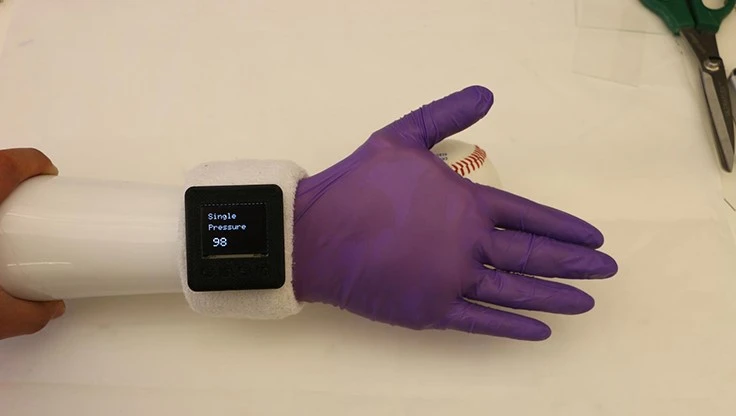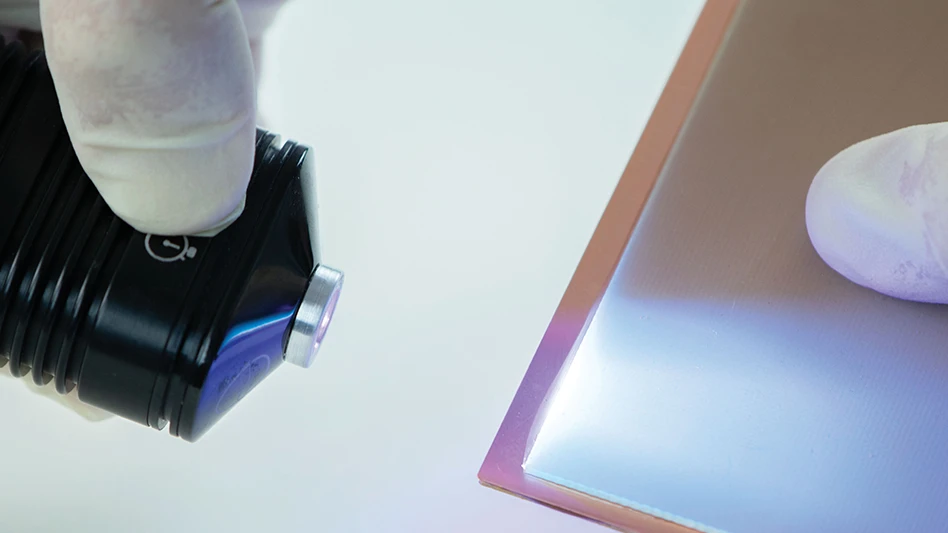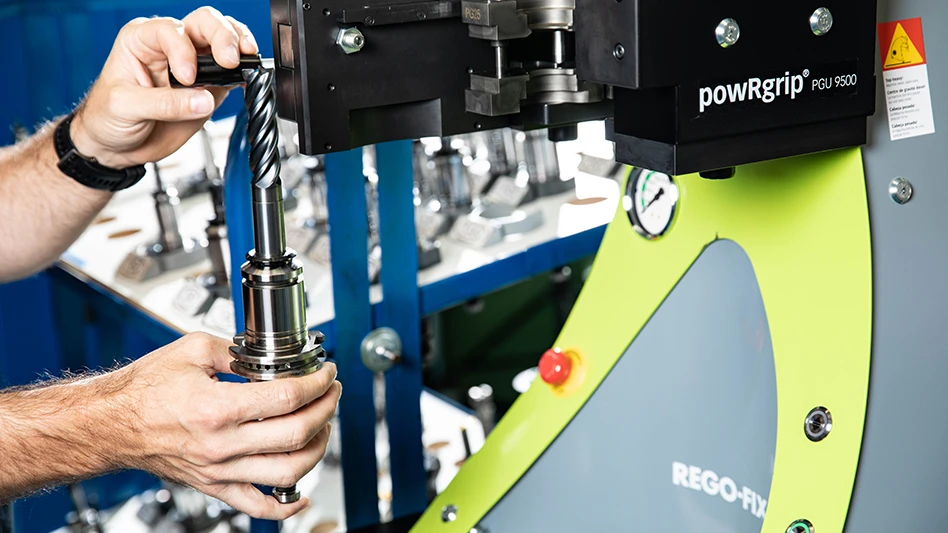
Purdue University/Chris Adam
While a conventional prosthetic hand helps restore mobility, the electronic glove, e-glove, developed by Purdue University researchers advances prosthetic technology by offering realistic human hand-like features in daily activities and life roles. It can be worn over a prosthetic hand to provide humanlike softness, warmth, appearance, and sensory perception, such as the ability to sense pressure, temperature and hydration.
The e-glove uses thin, flexible electronic sensors and miniaturized silicon-based circuit chips on the commercially available nitrile glove. The e-glove is connected to a specially designed wristwatch, allowing for real-time display of sensory data and remote transmission to the user for post-data processing.
Chi Hwan Lee, an assistant professor in Purdue's College of Engineering, in collaboration with other researchers at Purdue, the University of Georgia and the University of Texas, worked on the development of the e-glove technology.
"We developed a novel concept of the soft-packaged, sensor-instrumented e-glove built on a commercial nitrile glove, allowing it to seamlessly fit on arbitrary hand shapes," Lee says. "The e-glove is configured with a stretchable form of multimodal sensors to collect various information such as pressure, temperature, humidity, and electrophysiological biosignals, while simultaneously providing realistic human hand-like softness, appearance and even warmth."
The fabrication process of the e-glove is cost-effective and manufacturable in high volume, making it an affordable option for users unlike other emerging technologies with mind, voice, and muscle control embedded within the prosthetic at a high cost.
Lee and Min Ku Kim, an engineering doctoral student at Purdue and a co-author on the paper, have worked to patent the technology with the Purdue Research Foundation Office of Technology Commercialization. The team is seeking partners to collaborate.
"My group is devoted to developing various wearable biomedical devices, and my ultimate goal is to bring these technologies out of the lab and help many people in need. This research represents my continued efforts in this context," Lee concludes.
Latest from Today's Medical Developments
- Copper nanoparticles could reduce infection risk of implanted medical device
- Renishaw's TEMPUS technology, RenAM 500 metal AM system
- #52 - Manufacturing Matters - Fall 2024 Aerospace Industry Outlook with Richard Aboulafia
- Tariffs threaten small business growth, increase costs across industries
- Feed your brain on your lunch break at our upcoming Lunch + Learn!
- Robotics action plan for Europe
- Maximize your First Article Inspection efficiency and accuracy
- UPM Additive rebrands to UPM Advanced





